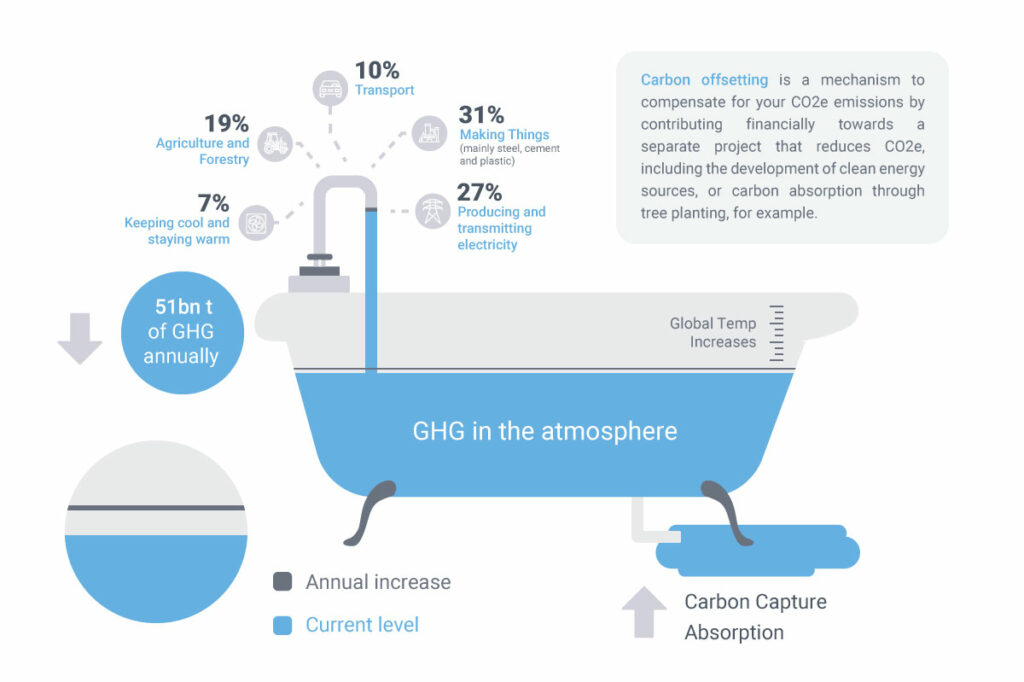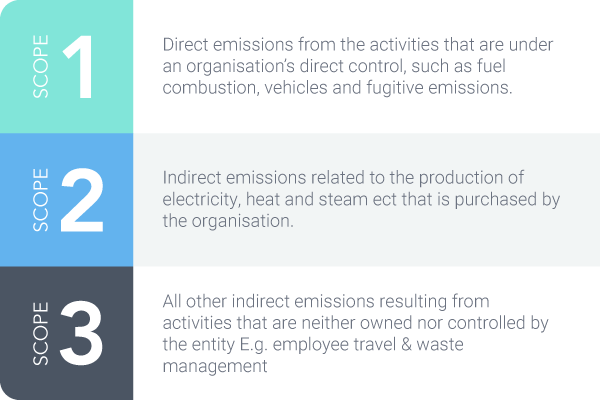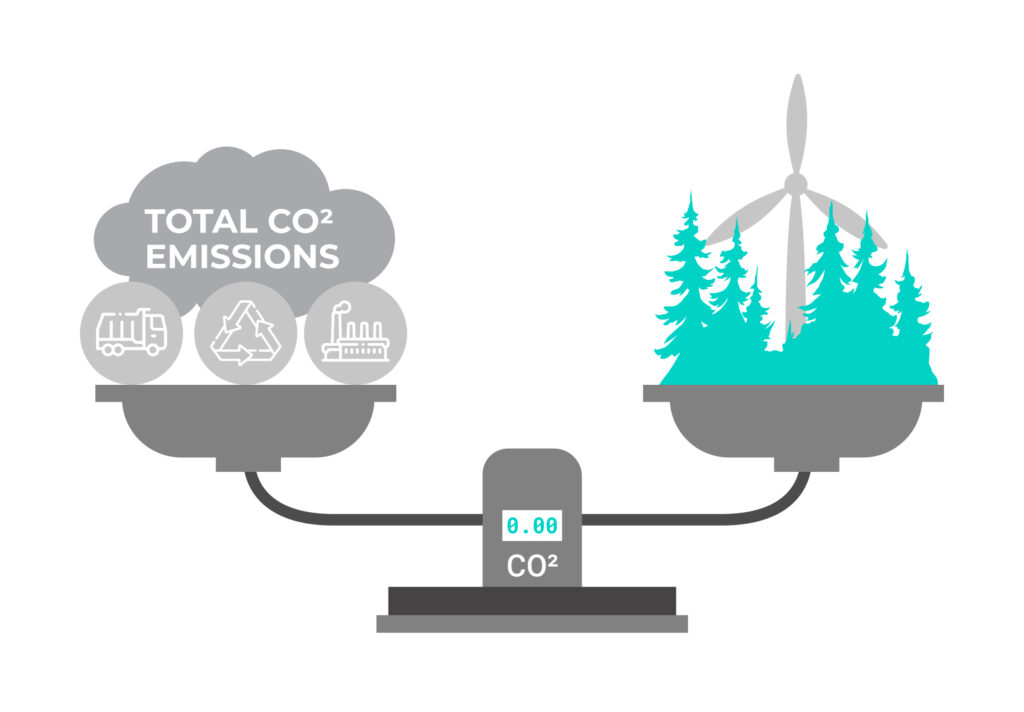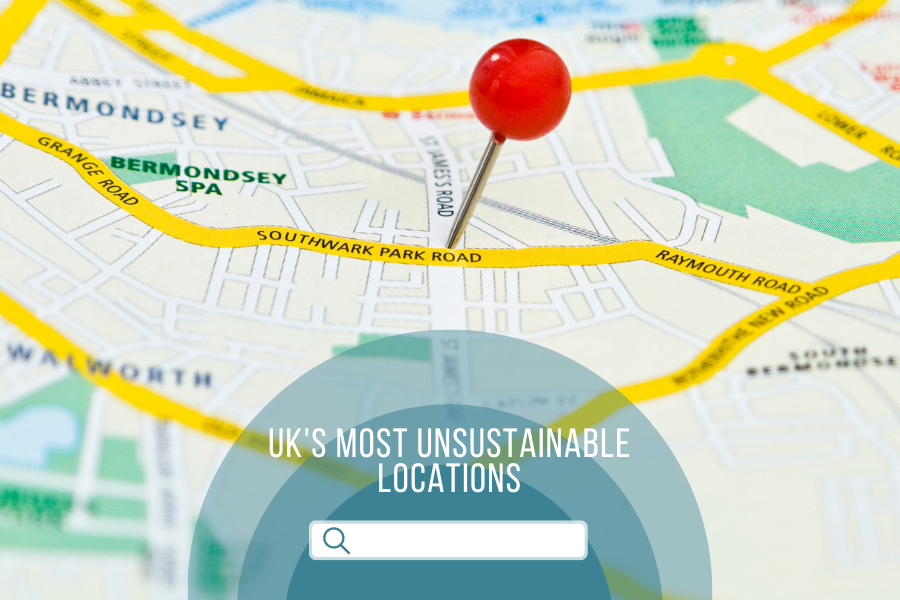As a company with strong environmental values, net zero is something Envirovue is passionate about. But what is net-zero, and why is it so important?
What does net zero actually mean?
Put simply, net zero refers to reaching net zero carbon emissions. But the important thing is that this doesn’t really mean cutting emissions down to zero. In many industries, carbon-free alternatives simply aren’t practical, or even possible, which would make zero emissions incredibly difficult as things stand.
What it really means – in practical terms – is achieving an overall balance between the CO2 released into the atmosphere, and the CO2 taken out of the atmosphere.
It’s inevitable a certain amount of CO2 will be released through human activity, but we can balance this by taking an equal amount out of the atmosphere, through carbon capture, absorption or offsetting, for example.
As a result, the CO2 levels in the atmosphere will remain the same – this is called net zero.
To help us understand the concept, scientists often use the analogy of a bath.
If you turn on the tap, water is added to the bath; if you take out the plug, water is taken away. The level of the water in the bath depends on the balance between the volume of water going in, and the volume going out. If this is equal, the level of the bath water will not change.

Why is net-zero important?
Climate change is having a devastating effect on our planet, and we’re only just beginning to see its effects, with more extreme weather, and rising sea levels.
The reason we’re seeing climate change is that the Earth has been slowly warming up for a long time. In fact, the Earth’s surface temperature has increased by over 1°C since the late 19th century – with most of this warming taking place within the last 40 years.
This might seem like a small increase, but it has a huge impact on the delicate balance of our ecosystems and has the potential to cause massive problems to our planet and society if we don’t reverse this trend.
Carbon dioxide and other greenhouse gases are a significant contributing factor to global warming, and these are largely generated by human activity such as industry, transport and farming.
By bringing an end to increasing emissions, working towards net-zero will go a long way to stabilising the level of greenhouse gases in the atmosphere, slowing down global warming and mitigating against severe and irreversible climate change.
What is the UK government doing to reach net-zero?
In 2020, the Prime Minister announced ambitious new plans to reduce greenhouse gas emissions by at least 68% by the end of the decade, compared with 1990 levels, and is committed to reducing emissions at the fastest rate of any major economy.
Driven by its commitment to the Paris Agreement, which aims to keep global warming below 1.5°C, the UK has pledged to achieve net zero by 2050.
This will require a shift-change in behaviour from industry, businesses and individuals, and the infrastructure, incentives and policy from government to make it happen.
Government policy is essential to achieve net zero, including grants and tax incentives that reward innovation and green alternatives. The UK government is planning to publish a comprehensive net zero strategy, stating exactly what it will be doing to help us all get there, ahead of the COP26 summit in November 2021.
How can I achieve carbon neutrality?
The key to start reducing emissions is to understand how much you’re currently producing, and where it’s coming from.
Compliance with PAS 2060 will help you on your way to carbon neutrality, encouraging you to calculate your carbon footprint by categorising emissions into scope 1, 2 and 3. In order for your company to be carbon neutral, you must calculate, reduce and offset all scope 3 emissions, which can be notoriously difficult to measure. At Envirovue, we have access to all the data needed to track your scope 3 emissions through even the most complex supply chains to help you navigate your total waste management emissions.
While it’s not possible right now to completely eliminate emissions, residual emissions can be offset, bringing you closer to carbon neutrality and helping you contribute towards a greener future.






About The Author: Alextrenbath
More posts by alextrenbath